Grigori Yefimovich Rasputin was one of the most influential figures during the twilight of the Russian Empire.
A sexual deviant, political saboteur, renegade monk, and mystic healer, Rasputin was renowned for having a mystical influence over the royal Romanov family, particularly the Tsarina, with whom he reportedly had an affair.
Rasputin was hated and admired during his lifetime, and his actions played a significant role in the Russian Revolution.
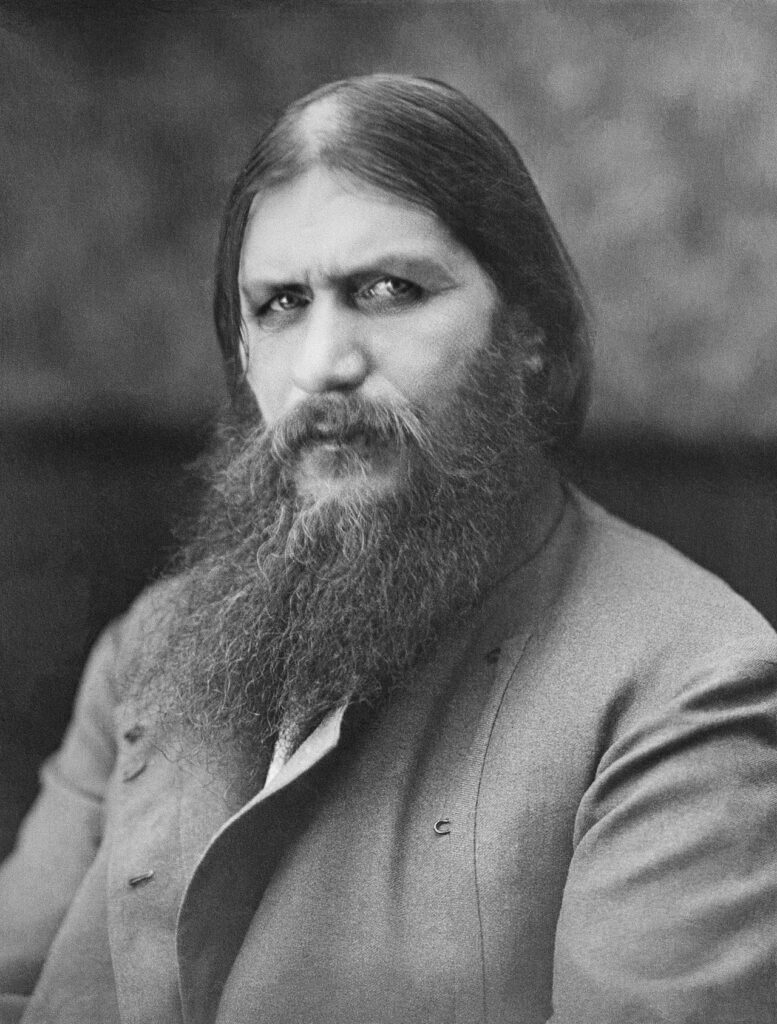
His Early Years
Born on 22 January 1869 in the small Siberian village of Pokrovskoye, Grigori Yefimovich was the only surviving child of seven children to reach early childhood.
However, he had no formal education and only learned to read and write during adulthood. He was married at 19 to Proskovya Fyodorovna Dubrovina, who bore him four children.
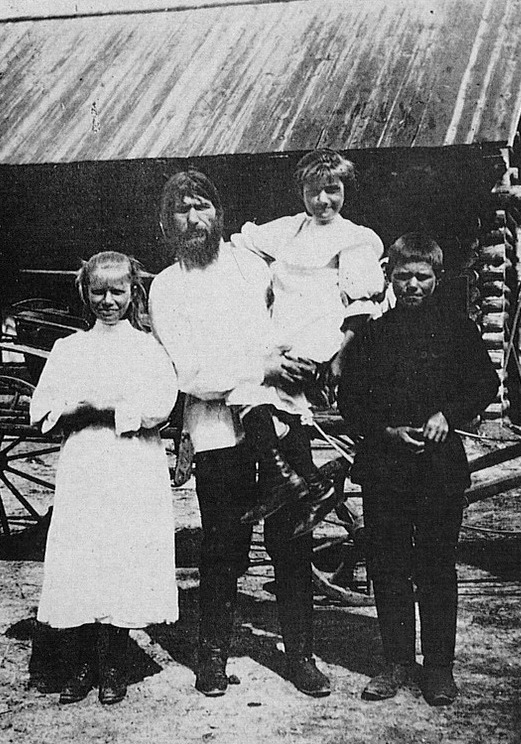
Finding no solace in his marriage, he left home and wandered into the streets of Athos, Greece, and Jerusalem, feeding off the donations of peasants.
He entered a monastery in the Ural Mountains during this period and later encountered God. He gained a reputation as a starets or self-proclaimed holy man, with supernatural abilities to cure spiritual and physical ailments.
Relationship With the Romanov Family
Rasputin’s journeys later took him to St. Petersburg around 1903, where he was introduced to the local church leaders. He eventually met and gained the admiration of the Montenegrin princesses, who were married to the royal family.
The two princesses introduced him to Tsar Nicholas II and Alexandra, his wife, who requested him to pray for the recovery of their hemophiliac son, Alexei, the emperor’s only son.
His presence had a hypnotic effect on the boy’s suffering and helped to stop his bleeding. The Tsarina (Alexandra) became convinced that he held the keys to her son’s recovery and offered him permanent access. His influence over the royal family grew steadily after.
Meanwhile, rumors about his salacious behavior swept over St. Petersburg. He had a large sexual appetite and was known to seduce society ladies, teaching that there can only be salvation through sin.
He also drank heavily and violated the teachings of the Russian Orthodox Church, which was the official church of the state. His licentious behavior earned him the surname Rasputin, the Russian term for the “debauched one.”
News of his actions reached the Tsar, who received confidential police reports about his behavior. However, Nicholas refused to take action against him, famously telling his prime minister, P. A Stolypin that he preferred ten Rasputins to one of his Empress’s hysterical fits.
Murder
The Tsar’s outburst was due to his acknowledgment of the Tsarina’s strong support of Rasputin and his spiritual powers.
The Empress preferred his judgment, which she believed was in line with the views of the poor Russian masses.
However, the situation became perilous in 1915 after the Tsar left the palace to command the Russian forces during the first World War.
In his absence, the Tsarina took over control of the administration of the royal court and allowed Rasputin to select his clique as public officers and ministers of the church.
A move that did not go well with some members of the nobles, who believed the monarchy was in danger.
The group of nobles, led by Grand Duke Dmitry Pavlovich (cousin of the Tsar), Prince Feliks Yusupov (husband to the Tsar’s niece), and Vladimir Mitrofanovich Purihkevich, conspired to kill him.
They summoned Rasputin to a party and offered him wine and cakes laced with cyanide. Then, seeing that the poison did not affect him, they shot him several times and flung his remains into an icy river.
However, his murder could not save the Russian Empire, and in March 1917, following the Bolshevik Revolution, Nicholas II, the last Emperor of Russia, formally abdicated his throne.
One year later, he and his family members were murdered by the Bolsheviks.
Over 100 years after his passing, Rasputin remains an enigma whose stories conjure up various legends and mysteries.
These insightful facts about Rasputin help to establish the truth about the famous enigma and his supernatural influence on the Romanov family.
He Was Never a Monk
Although he was popularly known as the “Black Monk,” the “Holy Devil,” and the “Mad Monk,” Rasputin never took any monastic oaths or vows.
He was known for establishing the Khlyst sect, which believed that only through the commission of sins and subsequent repentance could one get close to God. His spiritual awakening during his many religious pilgrimages in 1897 is linked to his membership in the Khlysti.
His sect was renowned for indulging enthusiastically in licentious activities, such as fornication and drinking.
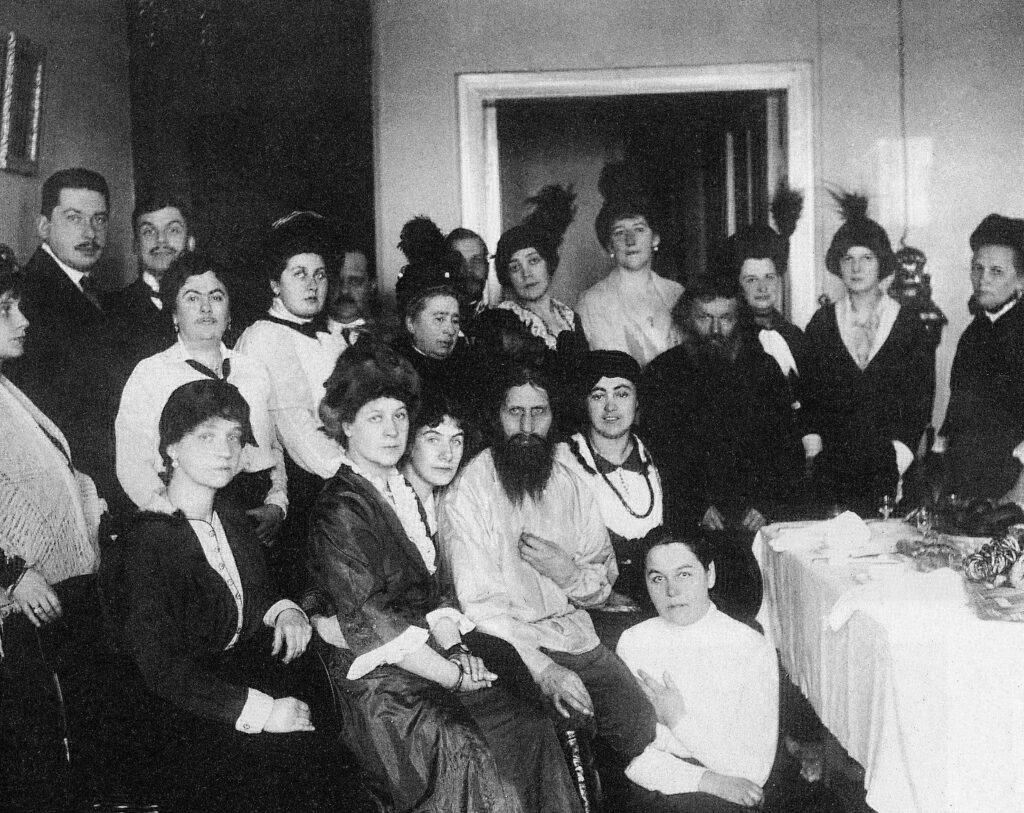
During this period, he also earned the erroneous monk title and went around the Russian Empire, declaring himself a “Holy Man” with mystical abilities, like healing.
He accused monks of the Russian Orthodox Church of participating in homosexual acts, claiming that the monastic life was not suitable for him and monastery was only a breeding ground for violence.
He famously referred to himself as “Christ in Miniature” and claimed that God sent him to save the Russian Empire from destruction.
He firmly embraced his reputation as a mystic and regularly healed people with his acclaimed powers.
While these might seem like an unhinged man’s ramblings, essential members of Russian nobility strongly believed and followed his teachings, including Tsarina Alexandra.
He Was Believed To Have Healing Powers
The locals widely believed Rasputin possessed certain mystical gifts even as a child. After marrying and birthing several children, Rasputin later abandoned his family in search of piety and spiritual devotion.
Following his introduction to the royal Romanov, he helped to stop the bleeding (hemophilia) of their only son Alexei.
The Tsarina credited his mystical powers for being responsible for the abeyance of the bleeding. This firm belief in his healing powers led the Queen to offer him a position of power within the royal court.
However, medical historians strongly oppose the notion that he had any healing power. According to them, Rasputin only succeeded in alleviating the pains of the young prince using hypnosis.
Some historians, especially Pierre Gilliard, believed that the bleeding only stopped due to Rasputin’s insistence on the non-usage of aspirin (a blood-thinning compound).
Regardless of the source of his powers, it is generally accepted that his presence helped to ease the sufferings and eventual healing of the young prince.
Rasputin Was Sexually Liberated
Despite his self-professed holiness, Rasputin was renowned for engaging in multiple sinful and immoral acts. Moreover, his membership in the Khlyst religious sect and their licentious beliefs further exacerbated his sexual deviancy.
The “Mad Monk,” as he was popularly called, was a heavy drinker, and according to records, if he weren’t drinking, he would be spending time with different women of the royal court.
Despite his reputation as a filthy person, Rasputin retained substantial influence over many noblewomen. It is rumored that he was engaged in an affair with Tsarina Alexandra Feodorovna.
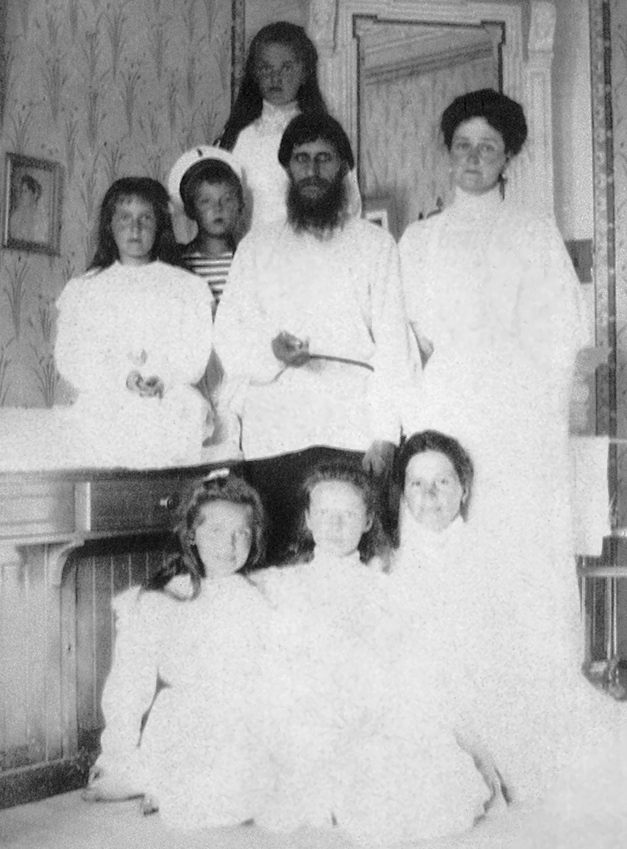
While this assumption is contentious, he certainly had a considerable influence on the Empress, which led her to blindly execute his advice following the departure of Nicholas II to the war fronts in 1916.
His notorious sexual appetite was not only for women of the upper class. Crowds of women followers usually gathered outside his home, sometimes waiting for days to meet with him.
With time, he assembled a class of favored ladies he referred to as his “Little Ladies.” These women would regularly bathe him, but their loyalty extended beyond this.
Over time, they started worshiping his private parts while indulging in other disturbing activities.
Moreover, his popularity among the women of St. Petersburg earned him more enemies within the upper class and beyond. This resentment festered with time and attained a breaking point during the start of the First World War in 1914.
He Was Not the First Mystic to be Appointed to the Royal Court
While Rasputin had a remarkable power of persuasion, he was not the first person to find a willing subject in Empress Alexandra.
Born into a Lutheran family, Alexandra converted to the Russian Orthodox after her husband’s ascension to the throne.
She was particularly drawn to the mysticism of her new orthodox faith and was heavily influenced by members of the Russian royal court who were ardently drawn to the occult.
In early 1901, she and other household members came under the strong influence of the famous French “healer” Phillipe Nazier-Vachot (also referred to as Anthelme Nizier Phillippe).
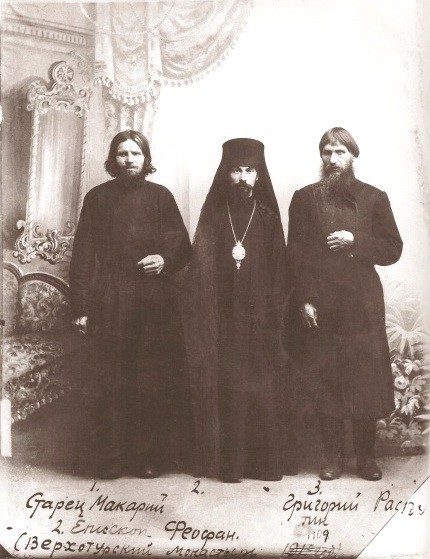
Phillipe Nazier-Vachot was known for performing seances, and he claimed he could alter the gender of a baby in the womb and predict the future.
Although he was later exposed as a fraud and a charlatan and later expelled from Russia, the royal couple firmly believed he could assist them in conceiving a son.
When Alexei was born with hemophilia (an infection passed onto him from his great-grandmother Queen Victoria), and the doctors could not find a cure, the Tsarina earnestly sought the aid of the supernatural for answers.
He Predicted His Death and the Murder of the Royal Family
Correspondences between Rasputin and Tsar Nicholas II following the monarch’s departure to the war front show that the “Dark Monk” had a keen interest in his death.
In one of the letters from December 1916, he stated that he believed he would die before 1 January 1917, and if any of the Tsar’s relations had a hand in his own, then none of the Tsar’s children would live for more than two years.
This correspondence was prophetic because the Tsar’s relations would ultimately end the life of Rasputin.
Rasputin was later killed in the early hours of 30 December 1916 by members of a group that included the emperor’s nephew-in-law and cousin.
In July 1918, less than two years after his death, the Tsar and Tsarina and their four children were murdered by their Bolshevik guards. The letter only emerged in the 1920s, and the only person that attested to its authenticity was Aron Simanovich, Rasputin’s secretary.
Rasputin also predicted that the world would end in August 2013. However, unlike his previous claim, this particular one was bogus.
He Was a Subject of an Assassination Attempt
Due to his growing influence, Rasputin’s growing list of enemies, which included members of the Russian nobility, hatcheted a plot to assassinate him.
Besides this class, many priests of the Russian Orthodox Church strongly condemned his teachings and sought to eliminate him. Among this group was Sergei Trufanov, popularly known as Hieromonk Iliodor. Another group member was one of the disciples of Georgy Gapon, a significant figure in the 1905 Revolution, who strongly condemned the failings of the Romanov family.
He was also a known adversary of Rasputin, holding him personally responsible for the misconduct of the royal couple.
They plotted an assassination attempt, and on 12 July 1914, a peasant lady called Chionya Guseva, a strong supporter of Iliodor, publicly stabbed Rasputin outside his apartment in Pokrovskoye. Rasputin sustained serious injuries but managed to flee the scene of the crime.
He survived the attempt, and the assassin was found insane and sent to the asylum in Tomsk. Learning about the failure of the attempted assassination, Iliodor fled to Norway.
He was later banished from St. Petersburg and was defrocked by the Russian Orthodox Church in 1912.
He Eventually Died in Another Plot
After the failed assassination attempt, his detractors never gave up, and on 29 December 1916, Rasputin was summed to a party at the palace of Prince Feliks Yusupov.
He was offered drinks and cakes heavily laced with cyanide. Despite the high concentration of the poison, Rasputin did not die and continued to eat other commodities on the table.
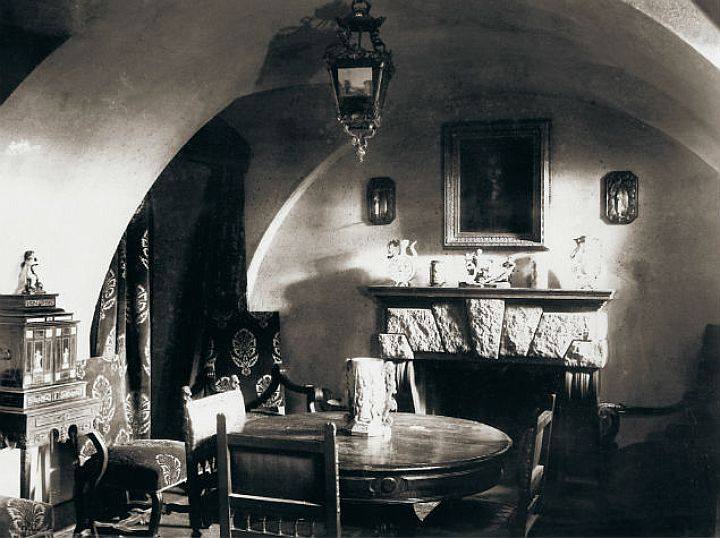
Surprised at his apparent ability to cheat death, Yusupov and his co-conspirators shot him severally.
Even then, he still did not die. He was, however, hindered by the several injuries he received and was later flung into the Malaya Nevska River, where he ultimately died.
Autopsy results suggest that he died at the age of 47 by drowning due to the water found in his lungs.

